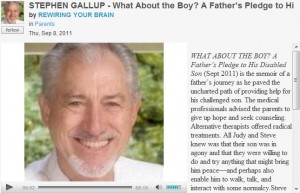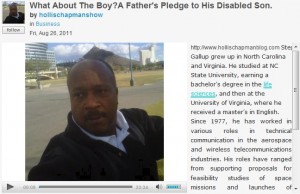The idea for this list arose when someone directed me to a page where I could vote for the year’s favorite books on the Goodreads website. It turned out that voting there was not an option, because I had no opinions about any of the entries. I’d heard of almost none of the nominated books in any category, and certainly had not read any. This may say something about the degree to which I am out of step with the kind of material that generates buzz.
I do, however, read quite a lot, and do try to stay up to speed with what’s new and interesting. So I set out to create my own top ten list for the year (in no particular order). Most, but not all, of the titles that follow were published in 2011. In any event they’re all recent, and I did read them in 2011.
Best legal fiction
Diary of a Small Fish, by Pete Morin
From my Goodreads review: “The dialog in this story is pitch-perfect and most of the characters entirely believable. … I was entertained, moved, even educated. I expect it to do well.”
Best story of self-discovery
Becoming Patrick: A Memoir, by Patrick McMahon
From my Goodreads review: “This is a story about feeling isolated or cut off from what is needed to feel grounded in life (primarily, knowledge of who one’s parents are), and about what it takes to overcome the real and imagined obstacles to bridging the divide.”
Best collection of short stories
There Is Something Inside, It Wants to Get Out, by Madeline McDonnell
From my Goodreads review: “It isn’t often that I reach the end of a book and immediately turn back to the beginning and start over. Granted, in this case that involves no big commitment, since the book is quite slim. Still, the number of pages is deceptive. There’s a lot in here, and the telling is so lovely that I just wanted to appreciate it thoroughly.”
Best travel memoir
Over the Hill and Far Away: One Grown-up Gap Year, by Jo Carroll
From my Goodreads review: “Travel writing is not so much about the places visited as it is about the interaction between the place and the writer. That’s a given, I think, but even so there are variations in the degree of focus on place vs self. Travel also frequently involves venturing outside one’s comfort zone. Jo Carroll illustrates her level of comfort during her explorations by the extent to which she can step outside herself and into the exotic locales through which she passes.”
Best historical fiction
(To) Die a Dry Death, by Greta van der Rol
From my Goodreads review: “[The author] grapples with the question of what motivates certain characters, who’d previously seemed exemplary, to descend into depravity. She further suggests that at least some of those who retain their perspective and decency also have a dark side. I was reminded of essays on that subject by John Gardner and Ursula K. LeGuin (which it’s probably time to revisit).” (I applaud the author’s decision to modify the title of the ebook version with the infinitive verb form.)
Best mystery
Lake Charles, by Ed Lynskey
From my Goodreads review: “For someone who has lived many years in a major city, as I have, there’s a latent wish to escape to the purity of an uncomplicated rural environment. Lakes Charles is the antidote for that, in the same way Deliverance was. In fact, I’m probably safe in saying that certain parts of this are a deliberate homage to Deliverance.”
Best YA fiction
Smells Like Treasure, by Suzanne Selfors
I know about this book thanks to my daughter, who occasionally shares some of her faves with me. This one is just pure, unabashed fun. There is nothing wrong with that.
Best philosophical novel
Lying Awake, by Mark Salzman
From my Goodreads review: “This was a good one to read on the heels of The Power and the Glory, which I reread a couple weeks ago. Both novels concern hypervigilant, self-critical souls questing for God and unable to take comfort in potential signs of having made progress.”
Best imaginary biography
Mrs. Nixon: A Novelist Imagines a Life, by Ann Beattie
As an acclaimed writer over a period of 35-plus years, Ann Beattie is in no need of my humble endorsement. However, this new book is much too original and thought-provoking to omit. The wife of President Nixon is selected as a subject, I think because she always chose to avoid the public eye and to remain in the shadow of her tragically flawed husband. The author acknowledges that such a subject is resistant to being truly and definitively pinned down, like a preserved butterfly, so she approaches it tentatively from a variety of angles and in a variety of voices and styles, somewhat reminiscent of what Joyce does in the “Cyclops” episode of Ulysses. It’s primarily a meditation on how a writer can know anything with assurance.
Best actual biography
Twilight at Monticello: The Final Years of Thomas Jefferson, by Alan Pell Crawford
From my Goodreads review: “Having read this, I feel that I understand Jefferson far better than ever before. What I see is a man who didn’t especially want to be in public life but who rose to the occasion far more capably than do most career politicians. I see an affable, generally cheery fellow who trusted people perhaps more than was wise but who remained relatively serene despite severe personal disappointments. I wouldn’t call him a paragon, but my admiration for him has been enhanced, and to it has been added a kind of affection.”
(Voting for my own book is unseemly, but I’m sure you’ll understand that publication of What About the Boy? has to remain the top literary event of the year for me.)
UPDATE: Author Joseph Valentinetti has begun reposting some of my Goodreads reviews on his site. The plan is to select one every couple weeks. The first to go live is Third Graders at War. Please take a look.
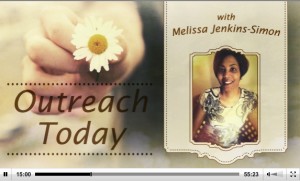 We took time out from holiday preparations for one last radio interview, which you can hear by clicking this link. My portion begins at about the 15-minute mark, but why not listen to the fellow before me, too. He’s written a book as well. The following excerpt was my response when the host asked me to explain what is meant by the “pledge” to my son in the book’s subtitle:
We took time out from holiday preparations for one last radio interview, which you can hear by clicking this link. My portion begins at about the 15-minute mark, but why not listen to the fellow before me, too. He’s written a book as well. The following excerpt was my response when the host asked me to explain what is meant by the “pledge” to my son in the book’s subtitle: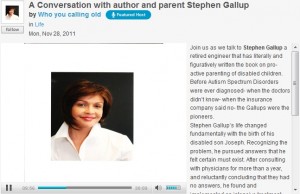
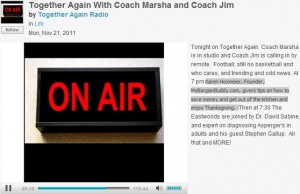
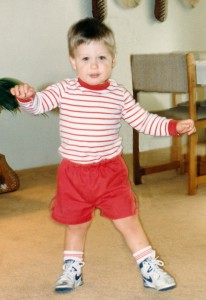
 The audio for my interview with New Orleans radio host Jeff Crouere is no longer online. However,
The audio for my interview with New Orleans radio host Jeff Crouere is no longer online. However, 

